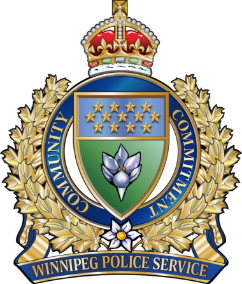Reprinted from the Winnipeg Free Press Community Review
All too often, reports come into the Financial Crimes office of the Winnipeg Police Service involving people meeting someone on a dating app or popular social media platform, sharing sexual images or video recordings, and then being coerced into sending money to a fraudster to prevent the photos or videos from being posted online for the victim’s family and friends to see. Sometimes the images are shared voluntarily by the victims, other situations involve webcam hacking or video chats being secretly recorded.
Unfortunately, that first $500 usually turns into $500 more, and $500 more, and maybe $500 more; resulting in significant financial losses to the victim. Not only are there significant financial losses, these scenarios create significant mental and emotional anguish for victims.
This type of financial crime is commonly called “sextortion.” It is a crime under the definition of extortion in the Canadian Criminal Code, under Section 346(1) and is against the law in Canada.

Meeting people online is part of living with modern technology but, just like anything that has to do with sex and intimacy, safety is key and there are ways to protect yourself.
What to look out for to prevent sextortion:
• Be wary of strangers;
• Don’t share private photos or videos with anyone online;
• Do not engage in sexual acts over webcams, and keep your webcam covered;
• Don’t engage when online strangers make inappropriate requests, block them instead;
• Make sure your accounts have two-factor authentication;
• Report suspicious activity to the social media sites;
• Don’t post too much personal information online, use a nickname;
• Use your social media privacy settings.
If you have been a victim of sextortion, know that it isn’t your fault. Fraudsters prey on our emotions and desires to get money. It is common for victims to feel embarrassed or ashamed when coming forward to make a police report and share details of the event and the person they believed they could trust.
However, you are not alone. There are resources available to provide you with support, such as the Manitoba Crisis Line — 204-786-8686. If a victim is under 18 years old, Cybertip.ca, Canada’s national tip-line for reporting online sexual exploitation of children should be contacted at www.cybertip.ca or 1-866-658-9022.
What to do if you have experienced sextortion:
• Remain calm and stop engaging with the person/account. Make sure your location is turned off on your phone, applications and accounts and check your account privacy settings;
• Do not pay any money or bitcoin to the fraudster;
• Secure your accounts and change your passwords;
• Save evidence of your interactions for investigators and make a timeline of what occurred;
• Contact the WPS Financial Crimes unit by making an online report at: www.winnipeg.ca/police/services/report-crime
March is Fraud Prevention Month, so the Free Press Community Review is running stories from the Winnipeg Police Service on its annual campaign to help you recognize, report and reject fraud.
